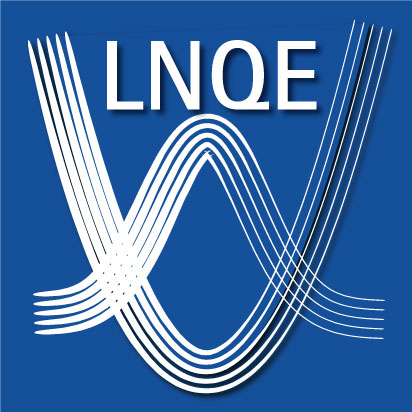How can the transition to a climate-neutral energy system succeed? How will we heat in the future, which drive technologies will we use for transport and which energy sources will we use to supply our industry? Can we keep our energy system stable and cost-effective, and how can we reduce our dependence on fossil fuel imports? At Leibniz University Hannover (LUH), around 300 scientists across all faculties are working and researching together on these topics. Energy research is now the sixth research focus at LUH. It complements the five already established research foci of biomedical research and engineering, optical technologies, production engineering, quantum optics and gravitational physics as well as interdisciplinary studies of science.
The subject of the work in the new key research area is the further development of selected technologies for the provision, storage, transport and utilisation of energy as well as the consideration of systemic interrelationships and interactions with the environment and society.
LUH has a long history in the field of energy research, for example in power plant technology, electrical energy technology, wind energy, and solar energy. These competences have been specifically strengthened in recent years through new appointments. LUH has set itself the goal of using its research expertise to support the transformation of the energy system to sustainable energy sources. The Leibniz Research Centre Energy 2050 (LiFE) was founded back in 2013 to bundle research activities into research lines, establish an interdisciplinary network and act as a competence partner for society and industry. "I am very pleased that our scientists are working on these socially highly relevant topics in our now official new key research area. Outstanding research is being bundled here in an exemplary way across disciplines," says University President Prof Dr. Volker Epping.
Many cutting-edge research projects are underway at various LUH locations. For example, scientists are working on making offshore wind turbines even more stable in the Large Wave Flume at the Coastal Research Centre and at the Test Centre for Support Structures. Strategies for the subsequent utilisation of old wind turbines are another focus of wind energy research. Solar energy research at LUH focuses on the development of highly efficient solar cells and the reduction of production costs. Green hydrogen plays a decisive role as a clean energy carrier in the aviation of tomorrow and many other areas. LUH is conducting research into this and other topics relating to energy-efficient and sustainable flying. In the field of photovoltaics, research is being carried out in cooperation with the Institute for Solar Energy Research in Hamelin (ISFH) on the integration of photovoltaic systems into building façades, which is intended to supplement the utilisation of roof surfaces.
The key research area also focuses on researching energy transport, conversion and storage, particularly using biological, chemical, mechanical and thermal processes. Energy generation systems are tested in the Dynamics of Energy Conversion research centre, for example to cushion fluctuations in wind and solar energy. Technologies such as heat pumps and electrolysers are used for energy conversion, including the coupling of energy sectors such as electricity, gas and heat.
All of this is only successful if the paths to transformation are supported by everyone. To this end, aspects of acceptance are being researched. For example, the Immersive Media Lab reproduces and simulates the acoustics of wind turbines and researches the perception of noise immissions. In order to stimulate social and political discourse, scientists are developing digital simulation games for citizen, administrative, political and interest group dialogues, among other things.
Energy research in Lower Saxony is networked in the Energy Research Centre of Lower Saxony (EFZN), a joint scientific centre of the universities of Hanover, Braunschweig, Clausthal, Göttingen and Oldenburg. As a central research, networking and communication platform, it pools the energy research expertise of the university locations and brings together the players involved in the transformation of the energy system from science, business, politics and civil society.
Further information on the key research area can be found at: https://www.uni-hannover.de/en/forschung/profil/schwerpunkte/energieforschung
This video provides a clear overview of the research activities in the field of energy research at LUH: https://www.youtube.com/watch?v=4STs0Y4feYk
Detailed texts on projects in the field of energy research at LUH can be found online in a university magazine on the subject: https://www.uni-hannover.de/en/universitaet/aktuelles/veroeffentlichungen/unimagazin/ausgaben/3-4-2022
Note to the editors:
For further information, please contact Mechtild Freiin v. Münchhausen, Head of the Communications and Marketing Department and Press Officer at Leibniz University Hannover, on 0511 762-5342 or by e-mail at kommunikation@uni-hannover.de.










![[Translate to English:] Logo Zusammenland farbig](/fileadmin/_processed_/a/9/csm_zusammenland_4c_e78505eb7d.png)
![[Translate to English:] Logo Zusammenland-schwarzweiß](/fileadmin/_processed_/1/2/csm_zusammenland_sw_f06954e75c.png)